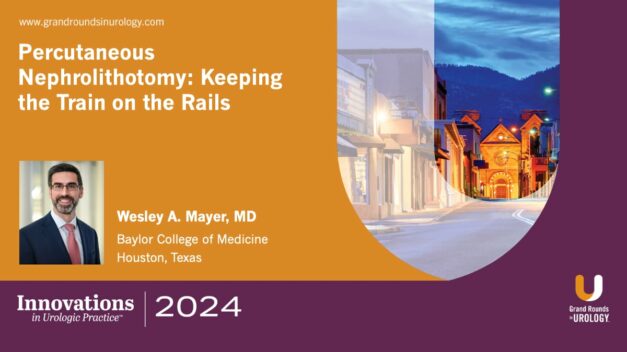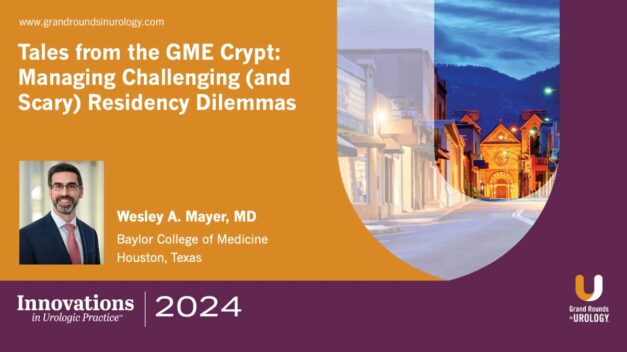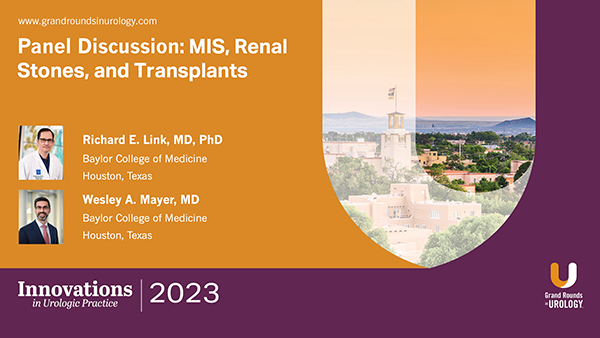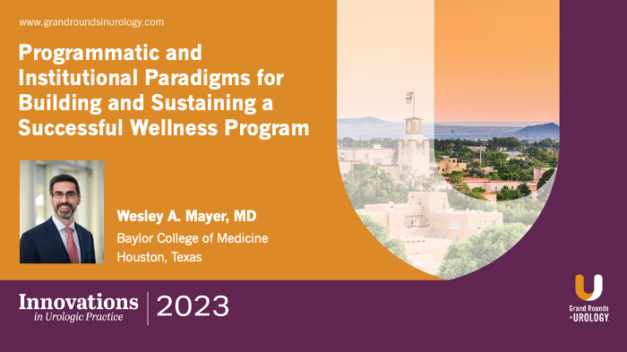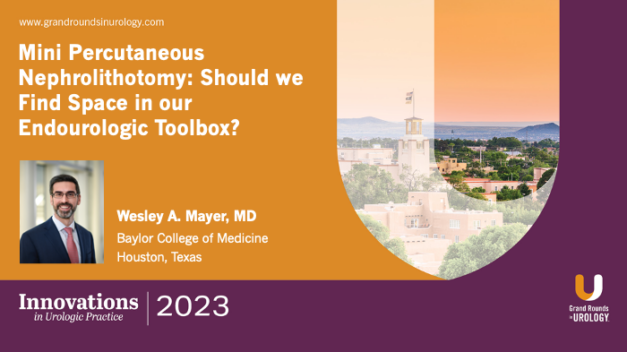PCNL Challenges: How to Keep the Train on the Rails
Wesley A. Mayer, MD, offers a comprehensive discussion on optimizing percutaneous nephrolithotomy (PCNL), focusing on minimizing complications, strategic planning, and adaptive surgical techniques.
In this 20-minute presentation, Dr. Mayer reviews indications for PCNL with updates on guidelines. He stresses the importance of individualized treatment decisions. Mini PCNL is emphasized for challenging lower pole stones, and for smaller stones, balancing efficiency and patient outcomes.
Dr. Mayer stresses preoperative preparation, underscoring the value of detailed imaging. The choice of access (prone vs. supine) is tailored based on patient anatomy, stone location, and procedural requirements. The importance of a flexible and adaptive approach is stressed, with practical examples illustrating the decision-making process when encountering complications.
Lastly, Dr. Mayer underscores the importance of knowing when to continue versus when to safely abort a procedure, reflecting on the need for prudent judgment to optimize patient safety and surgical outcomes.
Read More
